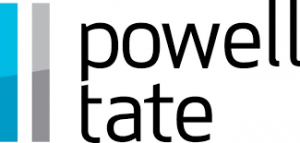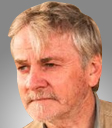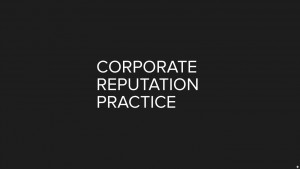|
First Stage of Crisis – Crisis Breakout
Organizations are exposed and vulnerable to crisis. It is unpredictable and damaging if it is not attended to timely. The changing landscape in communication has eliminated the days where organizations could try playing ostrich, burying your heads in the sands and hoping the problems would go away.
When a crisis occurs and one is under pressure to react in a timely fashion, negotiation is of the essence. We would begin our day 1 conference by looking at the crisis communication landscape today and explore if there is possible a one size fits all strategy that could prepare organizations to be on the safe side when crisis breakout.
|
| TIME |
AGENDA |
|
| 9:00am |
Opening Address by Forum Chairman |
|
| 9:10am |
Keynote Address: The Need for Speed: Crisis Management in the Brave New World of Fake News, Citizen Journalism and Social Media and Shareholder Activism
|
|
 |
Jacquelynne Willcox
Managing Director
Powell Tate (Division of Weber Shandwick)
Jacquelynne Willcox leads Australia’s multi award winning Corporate & Public Affairs firm, Powell Tate (a division of Weber Shandwick). Jacquelynne has considerable experience in the management of complex policy reform, influencing legislation, government relations, corporate profiling, litigation communications and crisis and issues management.
Jacquelynne is Deputy Chair of the board of Australia’s leading think tank, The Sydney Institute and is a trustee of CEDA, the Committee for Economic Development of Australia. Jacquelynne is a former television, radio and newspaper journalist. She has produced and directed television documentaries and is the author of two successful books.
Jacquelynne led the award-winning crisis and recovery campaign for Danone Nutricia during the Fonterra botulism scare (which was a multi market recall), and the subsequent and unrelated threat to poison all infant formula.
|
 |
| 9:55am |
Crisis, Communication, and the Attention Economy
Crisis communication, and the closely related discipline of issues communication, are more important today than ever for organizations and businesses. In order to develop a better contemporary understanding of crisis communication, it’s important to grasp how crisis communication is situated within and shaped by the larger context of today’s digital media landscape.
Our modern media landscape is characterized by the mainstreaming of the Internet and social media, the ripple effects of new and often disruptive technologies, and the massive tectonic impact of the digital economy for the business sector. New technologies have changed how organizations communicate with stakeholders and how people communicate with one another.
The idea of an ‘attention economy’ is now an influential lens which is being used to study the contemporary media landscape – we live in an era of informational abundance, and attention is a scarce commodity that is being sought after. This results in new possibilities for action, and also new pitfalls for communication.
What insights for crisis communication can we gain from looking at today’s digital media landscape in terms of an ‘attention economy’? In seeking best practice, we can address topics such as viral messaging, the vexed question of the relationship between social media and reputational capital, and how the Internet acts as an accelerator and/or trigger for crisis.
|
|
 |
Dr. Collin Chua
Lecturer
School of the Arts and Media, University of New South Wales
Dr Collin Chua is the Program Convenor for the Master of PR & Advertising and the Master of Journalism & Communications at the University of New South Wales, Sydney, Australia. His research addresses questions about the role of the media in producing value, desire and sociality, in an era increasingly driven by connectivity and the digital economy. One of the specialist courses he teaches at UNSW is on the topic of Issues & Crisis Communications.
|
 |
| 10:40am |
Morning Refreshments |
|
|
First Stage of Crisis – Crisis Breakout
The first 24 hours of crisis breakdown are often regards as the most crucial stage of the crises as it would be the first indicator on whether the crises would remain under control or erupt into a full blown crises that not only damage your organization reputation, but the bottom line too.
While organizations need to buy time to understand and gather the information required to develop a credible and sensible key messages to stakeholders involve, it is crucial for the organizations to release a holding statement that is designed to be used instantly after a crisis emerged.
The following sessions would explore the importance of factual information in holding statement and key messages development. We would explore on how to shape the key messages development that attributed to all stakeholders and media. |
11:00am
|
Image and Reputation – Managing Your Reputation in the Court of Public Scrutiny
- Value of Image: Protecting your branding and image during crisis breakout
- The Angry Public: Addressing and assuring the general public to maintain your company’s image
|
|
 |
Stuart Rintoul
Senior Media Officer (Emergencies)
World Vision Australia
Stuart is a writer and journalist for 30 years, including two decades with Australia’s national newspaper The Australian and leading magazines including Good Weekend, published by the (rival) Sydney Morning Herald and The Age. Stuart is now working with humanitarian agency World Vision Australia and has high level connections across politics as well as deep roots in indigenous communities across Australia.
- Author of The Wailing – a National Black Oral History (William Heinemann), recommended by Aboriginal leader Patrick Dodson for inclusion in the Library of Alexandria
- Author of Ashes of Vietnam – Australian Voices (William Heinemann and the Australian Broadcasting Corporation), the first oral history of Australians in the Vietnam War
Also published in:
- The Best Australian Essays (Craven, Black Inc);
- The Best Ever Australian Sports Writing – A 200 Year Collection (Headon, Black Inc);
- The Best Australian Sports Writing (Hutchinson, Black Inc;
- Encyclopaedia Britannica
- The Saturday Paper
|
 |
| 11:45am |
Case Study: Calling Your Lawyer in Crisis Communication to Protect Your Corporate Image and Reputation
- Examples of Different Crises and What They have in Common
- Talking to Your Stakeholders – The Media, Regulators and Public
- The Consistency of Your Information to Prepare for Media and Litigation Calling
|
|
 |
Neil Wallman
Special Counsel
HWL Ebsworth
Neil is a special Counsel in HWL Ebsworth’s national Litigation Group. Working on a variety of litigious matters, he specializes in resolving disputes where there is potential for significant financial and reputational loss for clients in the media, health, FMCG and transportation industries. His technical experience spans commercial litigation, equity, defamation & media disputes and trade mark and copyright infringements.
Neil also has extensive experience in acting for clients seeking to obtain urgent injunctive relief in the Supreme Court and Federal Court to either avoid or minimize reputational and financial harm from occurring or to prevent the distribution of unlawfully obtained assets.
|
 |
| 12:45pm |
Networking Luncheon |
|
| First Stage of Crisis – Communicating in Crisis Communication
Understanding the media and their agenda formed an integral parts of crisis communication. An organization need to have the ability to communicate with clarity in crisis communication as once story is told, it is impossible to take it back. Stakeholders are capable to misinterpret information about your organization based on the media. Thus, it is the organizations’ responsibilities to minimize the incident from happening.
The optimal way to react appropriately is to ensure that your spokeperson is capable in dealing media interview when the emotion and stress are running at its peak. The following sessions seek to understanding the shift in media reporting from a media’s perspective and how could organizations avoid creating an information vacuum by not communicating with media when crises breaks and intensified.
|
| 1:45pm |
Keynote Address: Looking Though Another Lens: How would the Media View & Publicize You During a Crisis
- Understanding the Media’s Agenda today – What is the Key Message?
- The Press Today: The Paradigm Shift in How Journalist is Interviewing and Reporting News
- Understanding how the media works: Insights from Recent Major Incidents
|
|
 |
Peter Roberts
Managing Director
Corporation Reputation Practice
A corporate reputation specialist of nearly 20 years, Peter has worked with a string of internationally revered brands across all sectors, including financial services, energy, healthcare, transport and technology. Peter affords clients a wealth of corporate communication know-how and experience from his board-level roles at the BBC and a number of globally recognized consultancies, in Australia and the UK.Starting his career at the BBC, where he was appointed the Head of Communications for the corporation’s hugely respected News Division, Peter learnt the craft of developing effective integrated communications strategies, while handling a range of reputational issues and managing a growing team of publicists.Peter left the BBC after he was asked to join multinational agency, Hill & Knowlton Strategies as a Senior Director. His time there was spent working closely with a range of illustrious businesses, including Visa, P&G, GE and Intel.Peter was invited to run the Reputation Practice at the Bell Pottinger communications agency three years later, where he generated two years of solid growth, and was involved in a spate of high-profile crises, including significant litigation cases, major product recalls and aviation accidents.Peter moved to Australia with his family and was quickly appointed the Head of Practice for the Corporate Communications practice at Weber Shandwick, supporting the likes of ANZ, MasterCard and Nespresso, before launching the Corporate Reputation Practice.Peter also tutors students at the University of New South Wales, and University of Western Sydney. Furthermore, he is also a seasoned media and presentation trainer, having trained senior executives from the likes of Barclays, Intel, GE and Emirates. Peter has spoken publicly on a variety of topics and written articles on numerous aspects of reputation management. |
 |
| 2:30pm |
Communication Channel Strategy During Crises
- Who is the audience in a crisis?
- Which channels should be prioritized in a crisis?
- What do we do when the lights go out (or: what if there’s no Internet anymore)?
|
|
 |
Grant Smith
Head of Corporate Communication
Melbourne Airport
For more than a decade Grant has led crisis communication programs around the world, working on projects including Australia’s largest ever pharmaceutical class action, workplace incidents resulting in major fatalities, and one of the world’s first truly global social media crises.
As the Head of Corporate Communications for Australia’s second-largest airport, Grant has a hands-on role in crisis and risk communication every single day. He is responsible for all external communication for the airport, and is frequently a spokesperson for issues of public interest.
Grant’s career includes roles in both in-house and consultancy environments, and he has worked on the ground in markets as diverse as Japan, India, Hungary, Netherlands and the United Kingdom.
Prior to joining Melbourne Airport, Grant was the Global Manager for Media and Communications at the Global Carbon Capture & Storage Institute, where he developed the global communications framework to support the Institute’s mission to accelerate deployment of carbon emissions reduction technology.
He is a previous General Manager of Edelman Public Relations in Melbourne, Chair of Edelman’s South-East Asia Crisis Practice, and Associate Director of H+K Strategies London. He remains a Director of Grant Smith Communications.
|
|
| 3:15pm |
Digital Crisis And The Rise Of Lone Wolf Attacks – A Personal Insight
Cyberspace is now officially a war zone, and Islamic State (IS) has the capability to dominate the virtual front line. Abu Bakr al-Baghdadi, the leader of IS, has it all figured out. His slick social media campaign has put the terrorist group out in front in this critical future battleground. Social media and technology have blurred geographical boundaries and allow communication with a global reach in real-time. In this new age, Australia’s geographic isolation from the rest of the world gives us no protection from messages being spread by the international Islamic militant groups. Extremists use these new communication tools to reach into the homes of Australians.
|
|
 |
Anooshe Mushtaq
Chair & Founder
Raqib Taskforce
Anooshe is a first generation Australian of Pakistani origin. She spent her early years in Pakistan and in Libya on posting with her family. Since her arrival in Western Sydney, Anooshe has experienced first-hand the changing cultural landscape of Australia. Based on her own experience, Anooshe offers an insight into how multicultural Australia has changed over the last 30 years and a perspective on the religious and cultural drivers of Muslim radicalization in Australia.
Anooshe is an accomplished public speaker and writer. She is a regular speaker at national security conferences on the topic of counter terrorism, building social cohesion, social media extremism, Islamic State’s recruitment strategies, countering violent extremism and Muslim youth radicalization.
Anooshe is Chair and founder of The Raqib Taskforce. The Raqib Taskforce is a Muslim-led, diverse organization that builds social inclusion through engagement across the Australian community in a manner designed to dispel extremist messages that exist within the public domain.
Anooshe’s research is based on Australian Muslim culture, integration of Muslim youth with mainstream Australian society, violent extremist ideology and Australian Government policies to combat violent extremism. She publishes regularly in The Australian, Sydney Morning Herald, The Age, Huffington Post, ABC News, Australian Security Magazine and Security Solution Magazine.
Anooshe is currently studying Masters of Terrorism and Security at Charles Sturt University. She is an Associate Member of the Australian Institute of Professional Intelligence Officers (AIPIO) and a Research Associate at the Australian Security Research Centre (ASRC).
Anooshe is also an advisor to Australian Government, Police, Google, YouTube and a consultant to charities and social welfare organizations working with vulnerable members of the Australian Muslim community.
|
|
| 3:35pm |
Afternoon Refreshment & Networking Session |
|
| 3:45pm |
Fireside Chat: My Life in Crisis: Lessons Learned over 25 years in Global Crisis Management
Alistair Nicholas has more than 25 years of experience managing major corporate crises in countries as culturally diverse as China and Australia. For example, he has managed crises that have included worksite deaths, sexual harassment and sexual assault in the workplace, product liability, product contamination, serious counterfeiting, corporate fraud and corporate extortion, investigations by police, the Independent Commission Against Corruption, and parliamentary and government inquiries. He has developed communications strategies and messaging, and has even acted as official media spokesperson for clients in these situations. Alistair will share his experiences and lessons learned during this interactive session.
|
|
 |
Alistair J. Nicholas
Executive Vice President – Director, Special Projects
Powell Tate
Alistair J. Nicholas is Executive Vice President – Director, Special Projects at Powell Tate Australia. He has considerable crisis management experience covering Australia, the United States and China. Alistair’s career of more than 30 years includes senior positions in public affairs agency and in-house roles, in political advice, in government and diplomacy, and in journalism.
In his current role he advises corporations on issues and crisis management, corporate and public affairs, and government relations.
From 2000 until 2013 Alistair was based in Beijing, China, where he provided strategic advice to a range of companies including many Global Fortune 500 companies, and to the Chinese government and foreign government embassies and agencies on a range of public affairs, government relations and crisis management issues.
Before moving to China, Alistair was the Trade Commissioner at the Australian Embassy in Washington, DC, where he was responsible for promoting Australian business and trade interests to the World Bank and United Nations.
Earlier in his career Alistair worked as international trade policy and media advisor to Australia’s Federal Coalition. He has also been a research analyst at Australia’s leading free market think tank, the Centre for Independent Studies, and a journalist for The Australian, Pacific Defence Reporter and The Optimist.
Alistair currently acts as Honorary Media Counsel for the Australia-China Chamber of Commerce; he is a member of the Agriculture Committee of the Australia-China Business Council; and, he is a member of the private sector advisory board to Macquarie University’s China Business Research Network. He is a widely quoted media commentator on China business issues and he has written opinion articles for The Australian and The Australian Financial Review as well as regional publications.
Alistair holds a B.A. (Hons.) in Political Science from University of New South Wales and a Certificate in Executive Leadership from Cornell University.
|
 |
| 4:25pm |
Panel Discussion : The Role of Communication Going Forward
- The Role of Communication in the Next Decade
- Crisis Management in Australia and the Challenges Faced
- How PR / Communicators are going to add value to company in the realm of Crisis Management and Brand Reputation
Panelists:
Catherine Ellis, Director, Media and Corporate Communications, Corporate Affairs, NSW Department of Finance, Services and Innovation
Luke Enright, Head of Corporate Communications, Jetstar Airways
Stuart Rintoul, Senior Media Officer (Emergencies), World Vision Australia
|


|
| 5:00pm |
End of Day 1 |
|
| 5:10pm |
 |
|
|
Champagne Networking Session
Enjoy a glass of champagne whilst networking with other like-minded individuals on topics that are of most interest to you and fellow delegates.
|
|